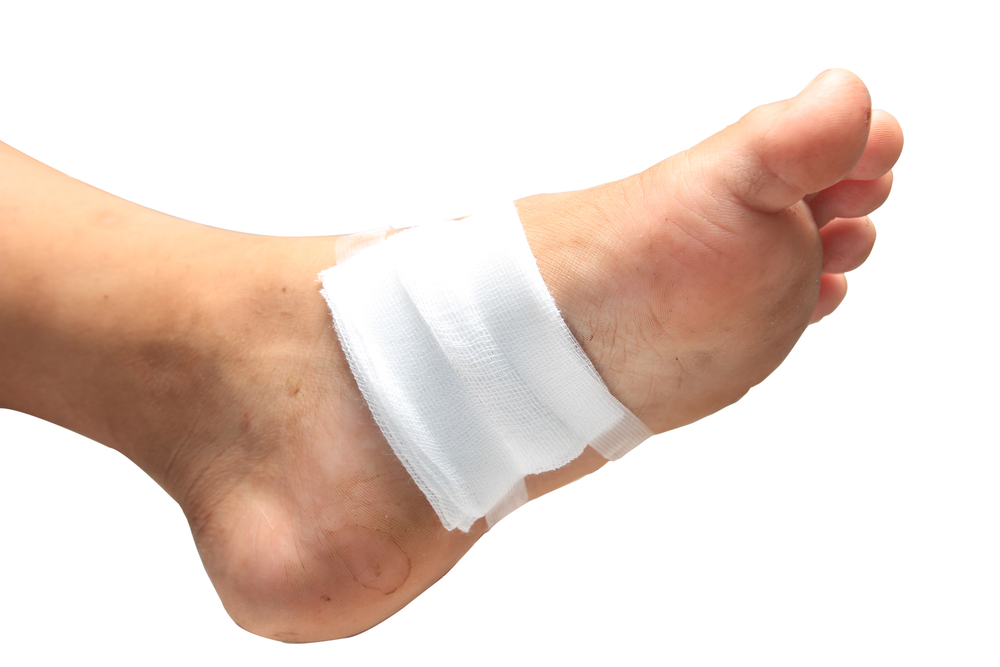Wound Care for People with Diabetes
Monday, 11 February 2019 00:00 In most cases, small lacerations on the feet naturally heal without any complications. Unfortunately, this is not true for those who suffer from diabetes. Foot ulcers are a common problem for those with diabetes, because diabetic neuropathy affects their ability to feel these wounds. Diabetic neuropathy occurs as a result of nerve damage and causes numbness and pain in the hands and feet. Therefore, people with diabetes may not feel an ulcer, which will lead to it not being treated. Some signs of an ulcer are drainage, redness, swelling, and odor. An ulcer that is left untreated will worsen and black tissue called eschar might form. When tissue death occurs because of infection this is called gangrene. Both symptoms can be life-threatening and should be taken very seriously. Those with diabetes should perform daily foot checks to ensure that no ulcers have formed. If you have diabetes and would like more information about how to properly care for your feet, it is recommended you consult with a podiatrist.
In most cases, small lacerations on the feet naturally heal without any complications. Unfortunately, this is not true for those who suffer from diabetes. Foot ulcers are a common problem for those with diabetes, because diabetic neuropathy affects their ability to feel these wounds. Diabetic neuropathy occurs as a result of nerve damage and causes numbness and pain in the hands and feet. Therefore, people with diabetes may not feel an ulcer, which will lead to it not being treated. Some signs of an ulcer are drainage, redness, swelling, and odor. An ulcer that is left untreated will worsen and black tissue called eschar might form. When tissue death occurs because of infection this is called gangrene. Both symptoms can be life-threatening and should be taken very seriously. Those with diabetes should perform daily foot checks to ensure that no ulcers have formed. If you have diabetes and would like more information about how to properly care for your feet, it is recommended you consult with a podiatrist.
Wound care is an important part in dealing with diabetes. If you have diabetes and a foot wound or would like more information about wound care for diabetics, consult with Dr. Nahid Birjandi from Mission Viejo, CA. Our doctor will assess your condition and provide you with quality foot and ankle treatment.
What is Wound Care?
Wound care is the practice of taking proper care of a wound. This can range from the smallest to the largest of wounds. While everyone can benefit from proper wound care, it is much more important for diabetics. Diabetics often suffer from poor blood circulation which causes wounds to heal much slower than they would in a nondiabetic.
What is the Importance of Wound Care?
While it may not seem apparent with small ulcers on the foot, for diabetics, any size ulcer can become infected. Diabetics often also suffer from neuropathy, or nerve loss. This means they might not even feel when they have an ulcer on their foot. If the wound becomes severely infected, amputation may be necessary. Therefore, it is of the upmost importance to properly care for any and all foot wounds.
How to Care for Wounds
The best way to care for foot wounds is to prevent them. For diabetics, this means daily inspections of the feet for any signs of abnormalities or ulcers. It is also recommended to see a podiatrist several times a year for a foot inspection. If you do have an ulcer, run the wound under water to clear dirt from the wound; then apply antibiotic ointment to the wound and cover with a bandage. Bandages should be changed daily and keeping pressure off the wound is smart. It is advised to see a podiatrist, who can keep an eye on it.
If you have any questions, please feel free to contact our office located in Mission Viejo, CA. We offer the newest diagnostic and treatment technologies for all your foot care needs.
Read more about Wound Care





